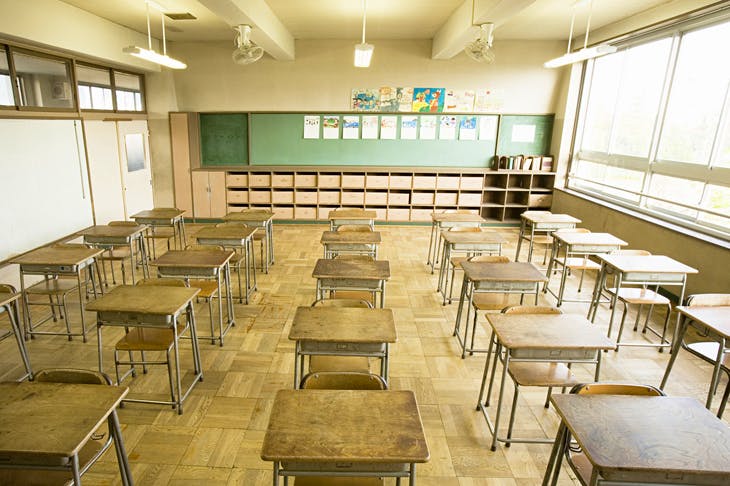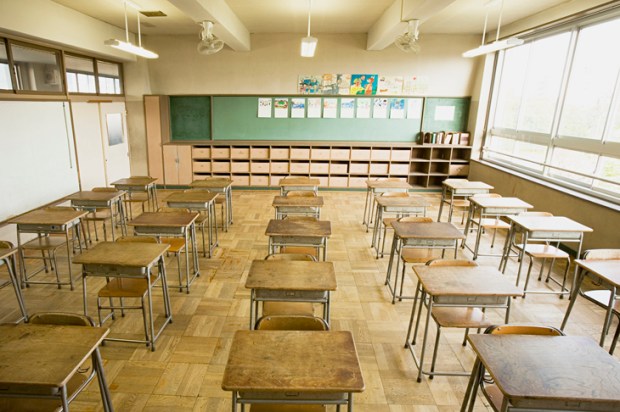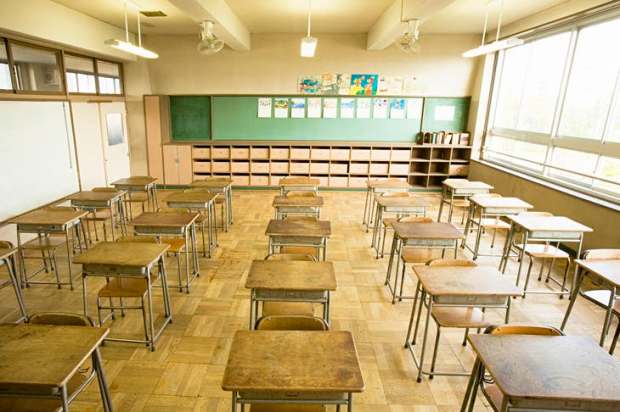I feel conflicted about Jon Platt, the parent at the centre of the court case about unauthorised school absences. On the one hand, there’s much to admire. When he was fined £120 by Isle of Wight Council for taking his daughter on a trip to Disneyland during term time, he decided to fight back. He got the decision overturned in magistrates’ court, the council appealed to the High Court, the lower court’s decision was upheld, and the council then appealed to the Supreme Court. Yet in spite of this gruelling legal process, Mr Platt hasn’t backed down.
When interviewed on television, he seems genuinely angry about being told when he can and can’t take his children on holiday. He doesn’t regard himself as a deadbeat dad — his daughter’s attendance rate at school is above 90 per cent — but believes the new rules, which were introduced by the government in 2013, are too severe. Seen in this light, he’s a conservative hero: a doughty yeoman standing up for his liberty by taking on the overmighty state.
Having said all that, I don’t have much sympathy for his cause. I supported the government’s decision to introduce bigger fines for parents who take their children out of school without permission, not least because unauthorised absences make life more difficult for teachers. Having helped to set up four schools, I know that teachers think carefully about the sequence in which children should be introduced to the different units of study within each subject. They design schemes of work and plan lessons with this in mind. A child who skips a day of school — or worse, a week — may well have missed out an essential step. If a teacher is conscientious,
as the majority are, they will feel obliged to get the relevant worksheets to the child, explain to their parents what it is they’ve missed — and in some cases, give up their lunch break to sit down with the child and go over the material.
When you bear in mind the workload that teachers already have to cope with, the behaviour of Jon Platt seems incredibly disrespectful. It is not Isle of Wight Council that he is cocking a snook at, but his daughter’s school. The principle he’s standing up for — and which he’s worked himself up into a lather of moral indignation about — is his right to massively inconvenience his daughter’s teachers just so he can go on a family holiday when the costs of overseas travel are lower. Not such a noble cause after all.
There’s another consideration, which is the harmful impact of Mr Platt’s actions on children from disadvantaged backgrounds. I challenged him about this on television last year and he described me as a ‘disgusting obnoxious man’. To his ears, I was claiming that if you don’t threaten low-income families with draconian fines for unauthorised absences they won’t bother sending their children to school.
Obviously, that’s not true. The vast majority of parents play by the rules, which is one reason travel costs are so much lower in term time. Nevertheless, there’s strong evidence linking poor attendance to poor academic attainment. Of those children who miss 50 per cent of school, only 3 per cent get five or more GCSEs at grades A* to C including maths and English. By contrast, of those who attend 95 per cent of the time or more, 73 per cent achieve that standard. And while it’s true that only a minority of children from disadvantaged backgrounds are persistent absentees, it’s also true that they make up a disproportionately large percentage of the total. A study in Sheffield in 1984 found there was a higher correlation between persistent absenteeism and free school meals than any other demographic variable. The truth is that if you reduce the penalties for unauthorised absences, you make it harder for schools to close the attainment gap.
Now, as a conservative, I’ve often been on the other side of arguments like this. For instance, opponents of school choice will invoke the welfare of children from low-income families, claiming it leads to greater social segregation. But the standard rebuttal — that the needs of some don’t trump the rights of others — doesn’t apply in this case. Mr Platt doesn’t have the right to take his daughter out of school whenever he pleases. In accepting a place at the school, he implicitly agreed to abide by the rules. He may be a doughty yeoman. But he’s also a selfish bastard.
Got something to add? Join the discussion and comment below.
Get 10 issues for just $10
Subscribe to The Spectator Australia today for the next 10 magazine issues, plus full online access, for just $10.















Comments
Don't miss out
Join the conversation with other Spectator Australia readers. Subscribe to leave a comment.
SUBSCRIBEAlready a subscriber? Log in